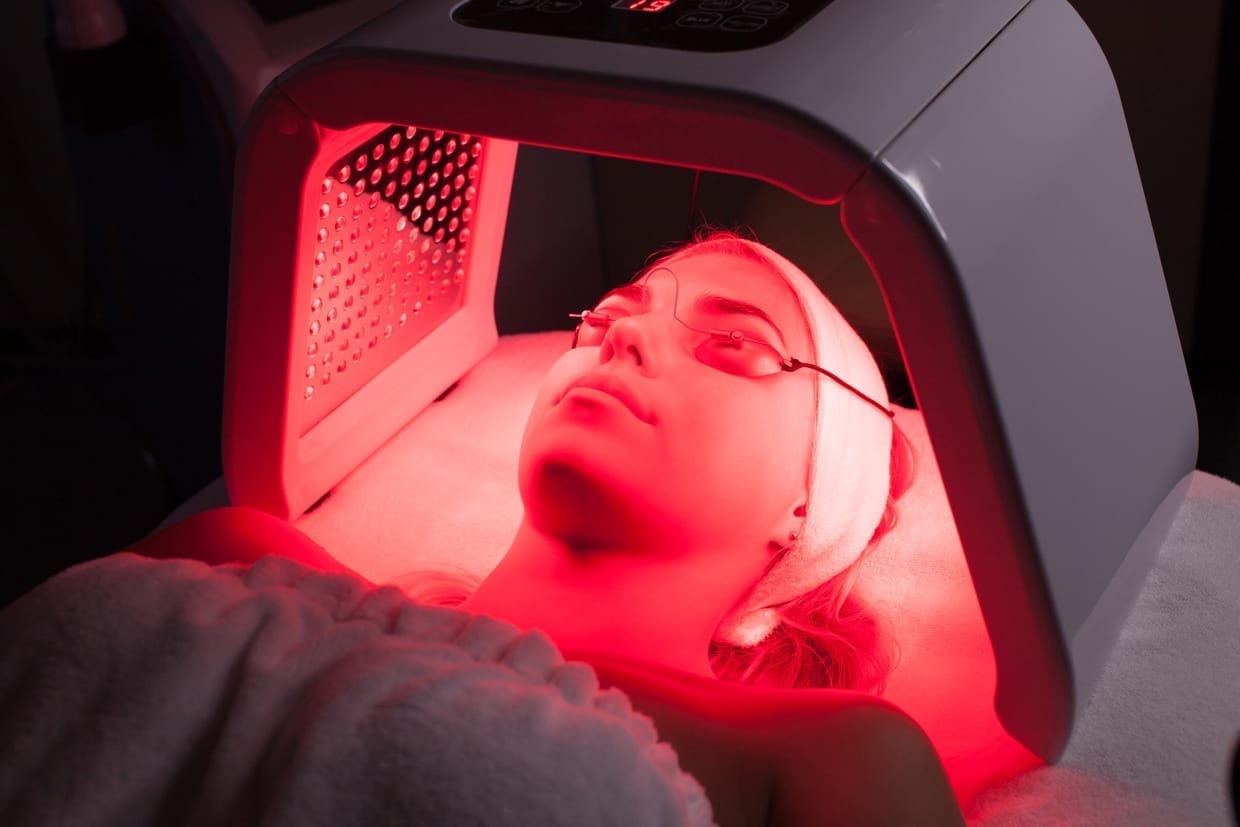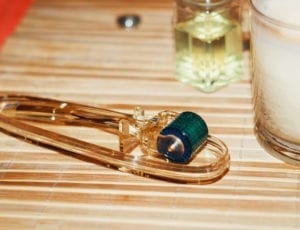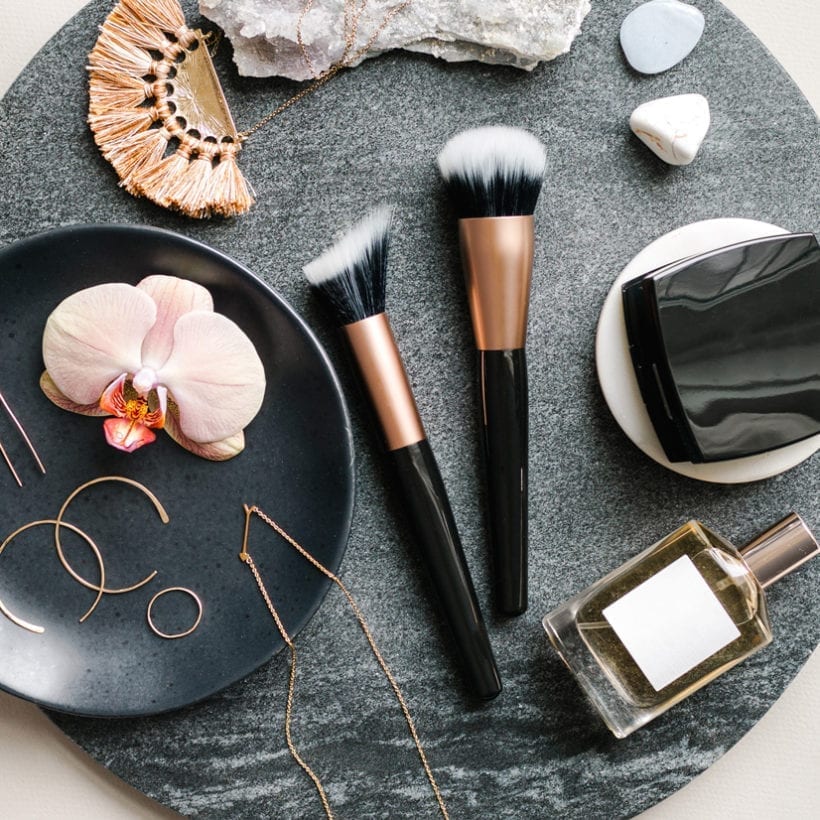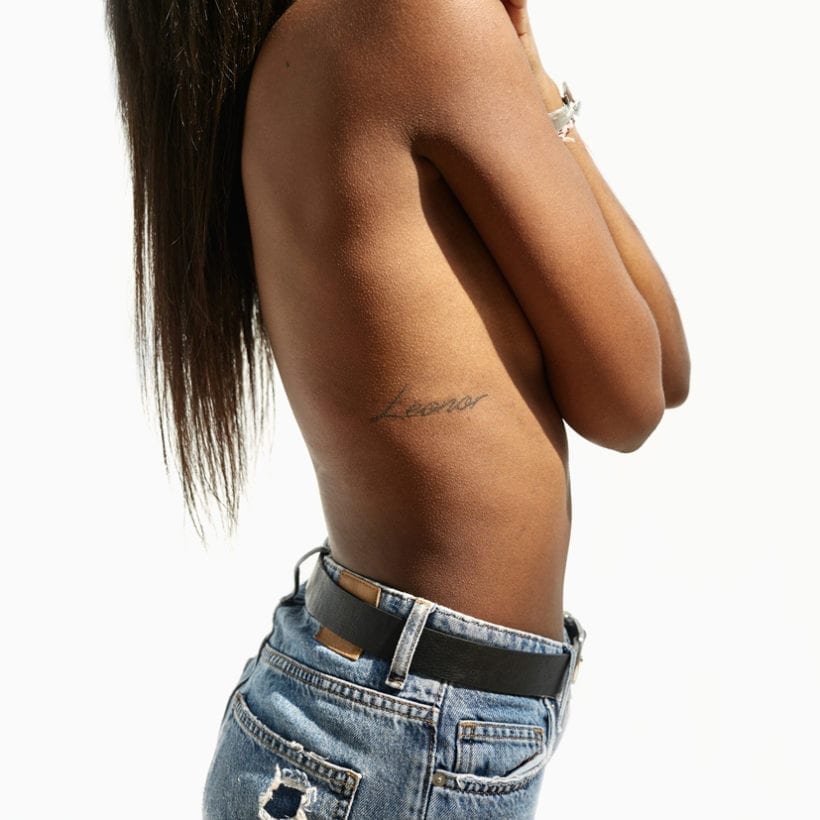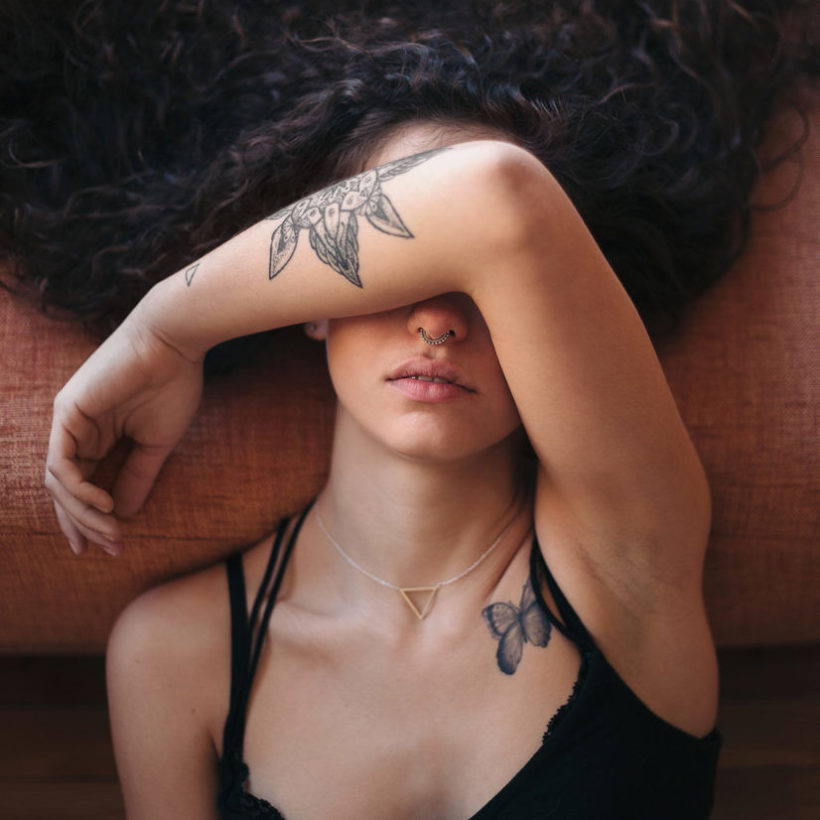Light therapy sounds like skincare magic: literally flip a switch, and bask in the glow of less acne, inflammation and younger-looking skin. But light therapy (which is scientifically called “photorejuvenation” and uses LED lights) also made some not-so-great headlines this summer when Neutrogena recalled its Instagram-famous light therapy masks over concerns that they had the potential to cause serious eye damage.
In light of the controversy, here is everything you need to know about LED light therapy, its benefits for your skin and any potential risks for your eyes.
The Science of Light Therapy
Despite the fact that light therapy sounds like magic, it is actually just creatively applied science. “Photorejuvenation is a skin care treatment that uses infrared light in varying wavelengths — most commonly red and blue — for skin treatments,” says Ava Shamban, M.D., a board-certified dermatologist and founder of Ava MD Dermatology and SKIN FIVE clinics.
This is not the same as UV light — the kind that causes suntans and skin cancer. “Essentially the different wavelengths and colors send a message into the layers of skin to trigger a different reaction,” Shamban says. “Used alone or combined with other in-office treatments, light therapy can target everything from acne to aging to texture issues in the skin.”
Red Light
Red light is used to treat signs of aging — think: sunspots or sagging. It works by promoting collagen production, explains Shamban, which is the foundation of the plump, firmness that is characteristic of youthful skin. (Infrared light is similar to red light except these wavelengths penetrate even deeper into the skin.)
As you age, your collagen stores naturally break down and diminish, but there are plenty of treatments like red light therapy that jumpstart your skin cells to produce more. Research has also shown that red light therapy helps speed wound healing. When it comes to the appearance of your complexion, the theory is that it helps repair damaged cells.
Red light therapy is “also a great anti-inflammatory,” adds Shamban, which ironically means it can help reduce redness in the skin.
Blue Light
Blue light therapy is most commonly used to treat acne. “It can be used to improve skin texture and complexion as well as reduce sebaceous hyperplasia, also known as enlarged oil glands, which contribute to ongoing acne breakouts, whiteheads and blackheads,” says Shamban. “It can also help with removing acne and acne scars.”
Light Therapy Treatments
The allure of light therapy treatments comes from the fact that that they are non-invasive and painless. (Unlike certain laser treatments, photorejuvenation does not use thermal energy, so there is no risk of uncomfortable heat on your skin). Plus, it requires exactly zero effort from you — even with an at-home treatment, all you have to do is strap on the mask, sit back and relax.
Generally, light therapy treatments fall into two categories: in-office and at-home. The former involves lounging under what looks like a face-sized tanning bed (sans the dangerous UV rays) and the latter, you have probably seen on Instagram.
For both, Shamban recommends using them in tandem with other treatments (like a facial) for the best results. “We always recommend partner treatments or products that can be used at home to continue the efficacy of in-office treatments,” she says. With both, consistency is key “when working on regeneration, anti-aging, hyperpigmentation, acne or various other skin conditions,” she adds. “Generally, if the approach is one and done, it is not effective.”
But What About the Recall?
Neutrogena’s recall raised a really important question: Is light therapy as harmless as it seems? The truth is, light therapy can cause eye damage.
If you have ever had a photorejuvenation treatment or used an at-home mask, it is easy to see why: Those lights are incredibly bright, and you are exposed to them for a while (typically around 20 minutes in one session).
Concerning the Neutrogena recall, the Australian Department of Health stated that certain people may be susceptible to “varying degrees of retinal damage that could be irreversible and could accelerate peripheral vision impairment or loss,” according to the New York Times.
The truth is, light therapy can cause eye damage.
“Eyes should always be protected,” says Shamban. But that does not mean all goggles used in LED light treatments are created equal. “Think about shades in your bedroom — there are super sheer, semi-light blocking and total blackout versions,” she says. When it comes to goggles, “the best possible type of eye protection is a blackout goggle which basically does not allow any light through. These glasses or goggles can be more of an oversized shield fit to cover the orbital region and block any and all potentially harmful or degenerative rays from the eyes,” she says. “Plus, they provide more than enough dimming so that the intensity for any LED light could not cause interference, discomfort or any sort of damage.” Never have any sort of light therapy or laser treatment without them. (Shamban also advises patients to keep their eyes closed during the treatment, even while wearing goggles.)
Home masks tend to be less intense than in-office treatments, but your eyes still need to be protected — and you need to make sure you follow the instructions to a T. “Just because some is good, more is not better or best. Following the directions and manufacturer guidelines of any home skin tool or device is paramount to its success and safety,” Shamban says. If the manufacturer advises using the treatment once a day for 20 minutes, doing even two or three sessions a day could be dangerous. “I always recommend you check with your board-certified dermatologist before starting any new protocol, product, tool or technology.”
Ultimately, the risk of eye damage is unlikely, says Shamban. “There would need to be a significant overload or cumulative exposures to bright and high intensity,” she says. “Generally, these treatments are simple, safe and controlled to achieve their skin goals, without any residual negative effects on the eyes.”
We only recommend products we have independently researched, tested and loved. If you purchase a product found through our links, Sunday Edit may earn an affiliate commission.
